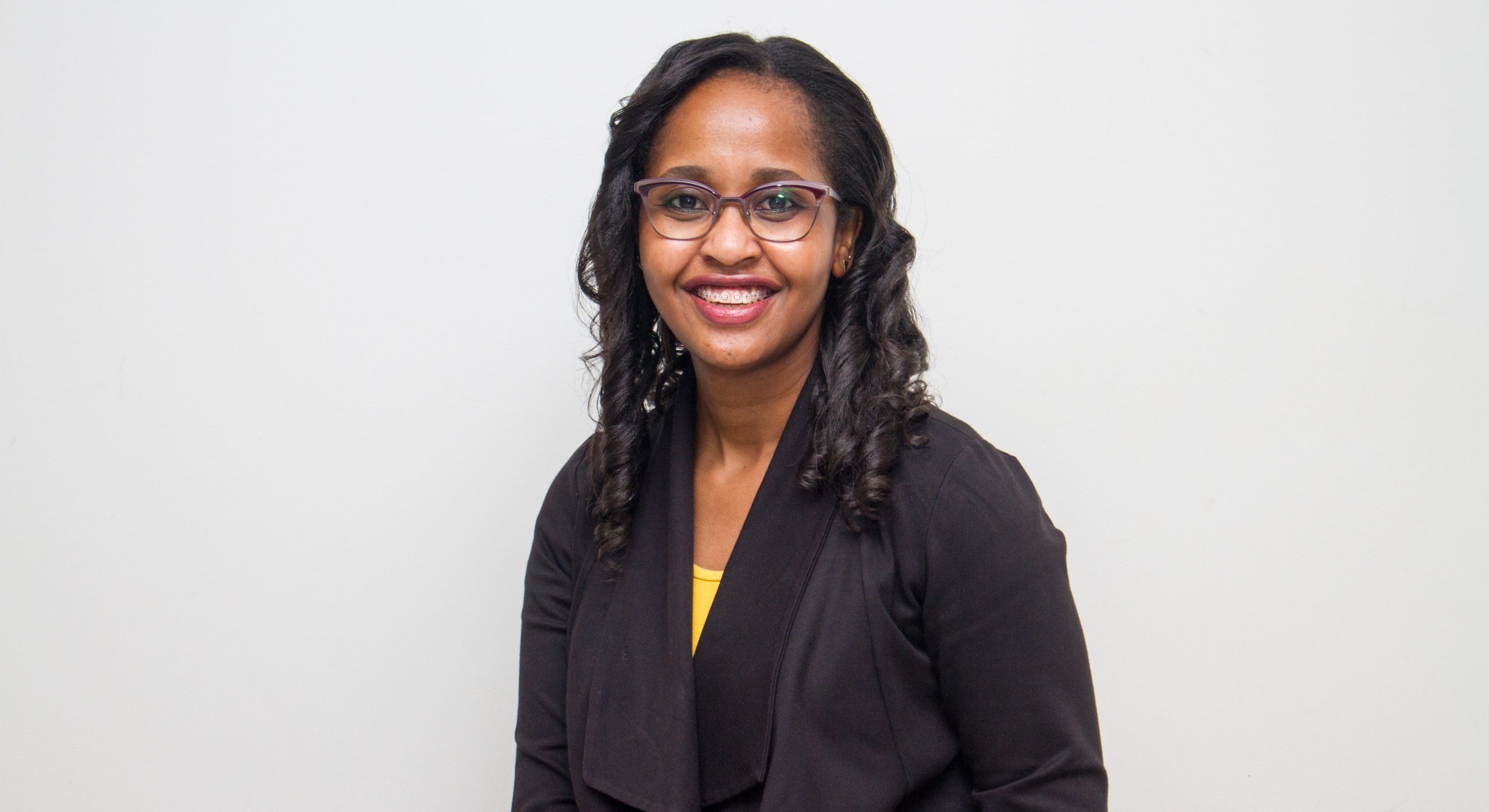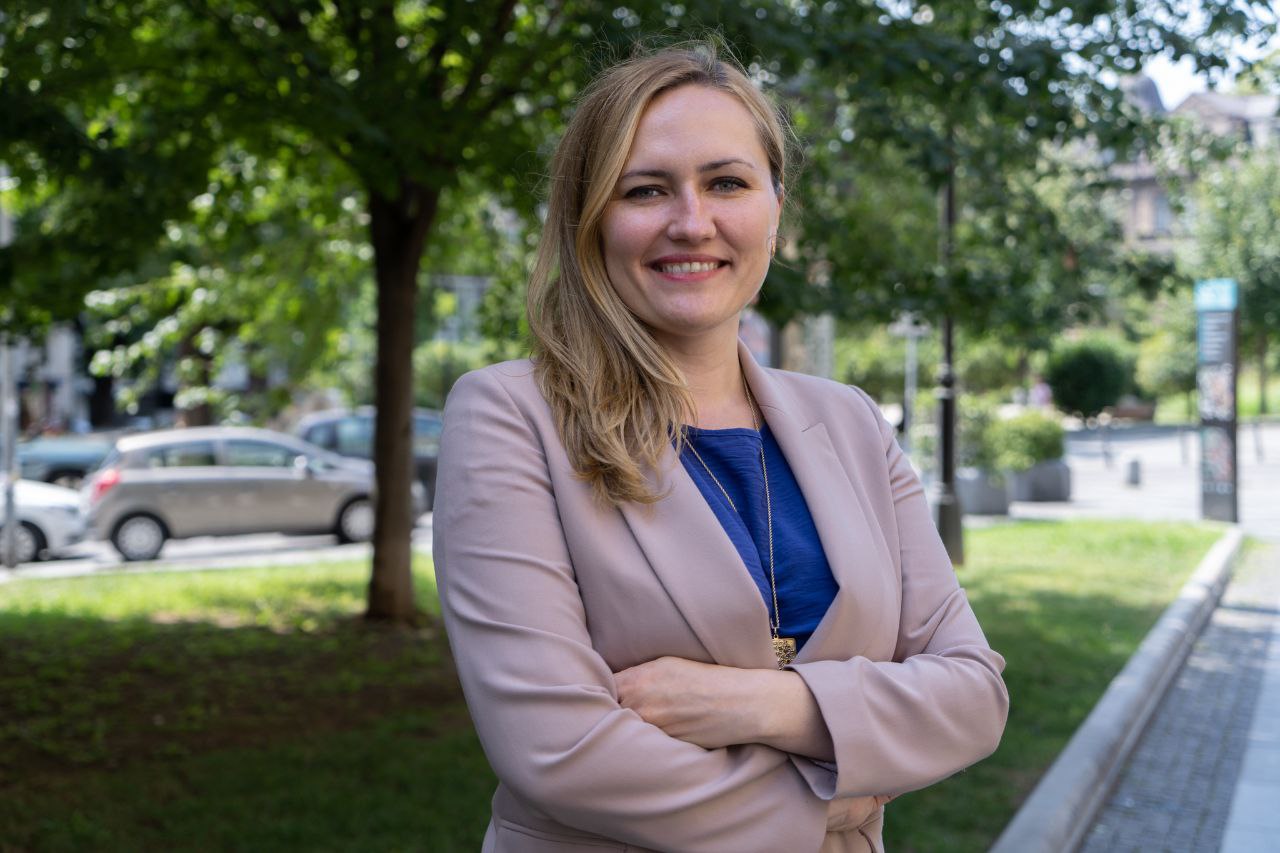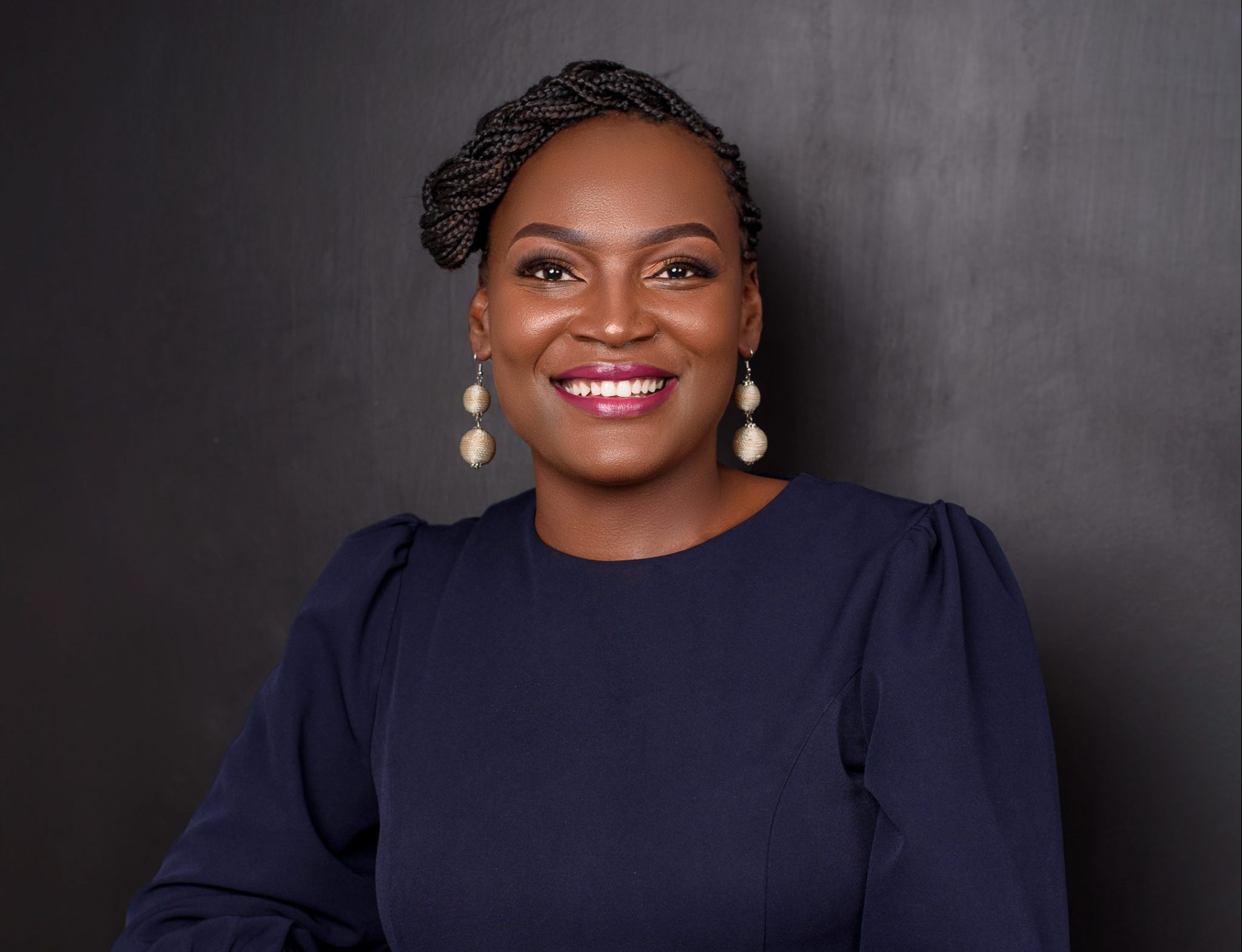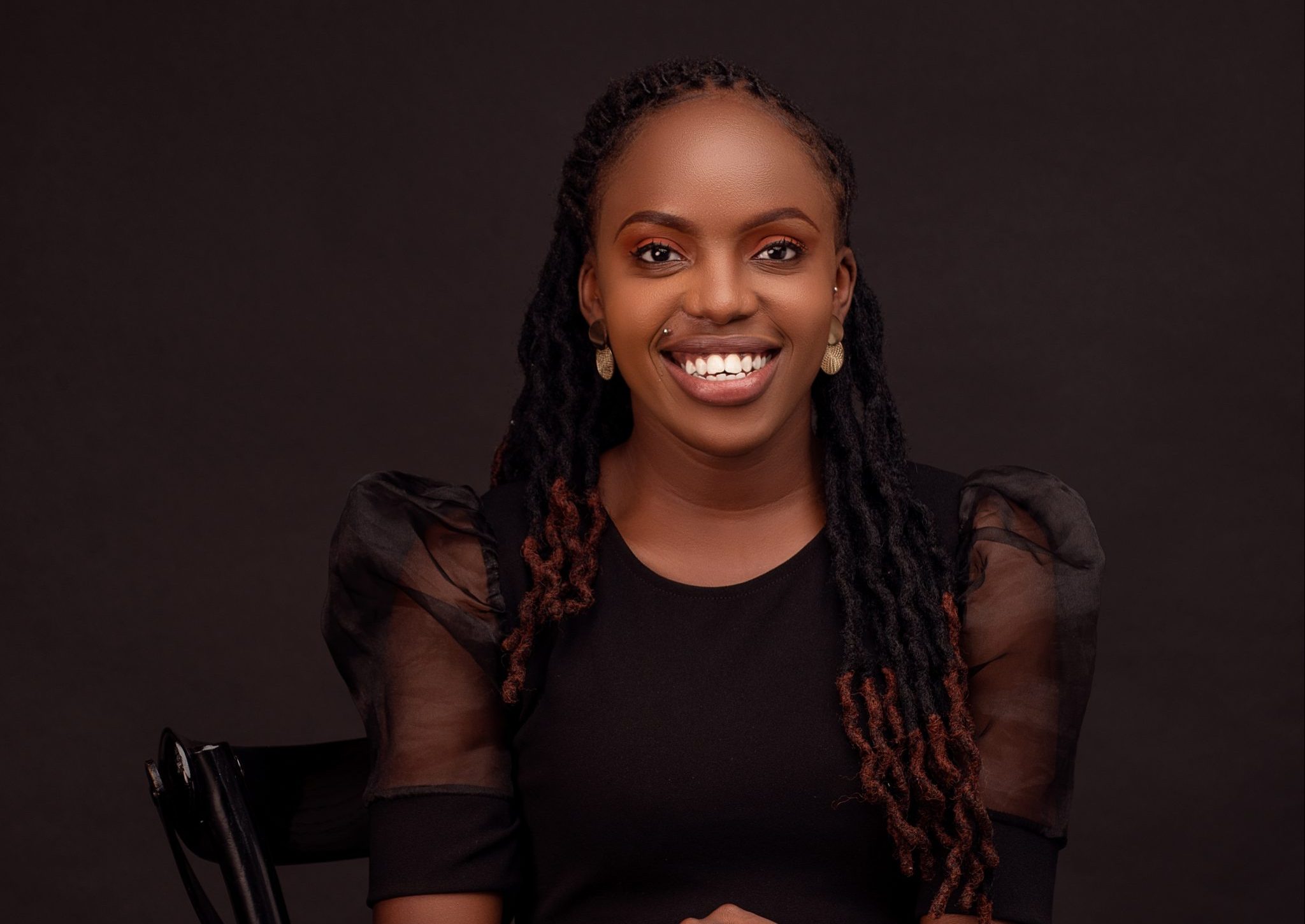Liz Kariuki is a development communications professional with vast experience working on development projects. Reading through her interview, one thing that stands out is her passions to use her expertise in communications for impactful outcomes. She shares in depth her journey into communications and what development communications professionals can do to achieve success in their roles.
Read her profile below and enjoy her interview with us:
Liz has over ten years of experience in marketing and communication, six of which have involved designing and implementing communication and campaign strategies, project branding, content creation, and developing online and offline communication assets for multi-national donor-funded projects. She has experience working with development projects funded by The U.S State Department, USAID, The World Bank Group, JICA, Argidius Foundation, UNDP, Royal Norwegian Embassy, Sida, and NORAD, among other partner projects.
She holds a bachelors’ degree in Marketing Management from Daystar University, Kenya and an advanced professional Strategic Marketing certification from the Chartered Institute of Marketing (CIM) in the U.K. She is currently pursuing a masters’ degree in Development Communication at Daystar University, Kenya.
What do you love most about working in the communications field?
My experiences in communications have shown me that I enjoy facing and overcoming the challenge of incrementally matching my skills and creativity to this ever-evolving field. I think that communications constantly grows almost at the same rate with advancements in digital technology. Without a doubt, the need to deliver accurate and timely communication products also unlocks my potential to keep up to date with online trends while positioning ideas into creative visual and verbal narratives that focus on development work. If any profession is founded on self-determinism and nurturing multiple skills with tools and software, it surely must be communications.
Please take us through what you do within your role as the Communications Lead at GrowthAfrica?
I oversee brand development at GrowthAfrica’s organizational-wide level as well as partner and donors projects. Brand development involves designing and implementing communication and campaign strategies, differentiated project branding, curating key messaging and project content, developing communication assets such as brand logos, colours, fonts, factsheets, templates, graphic designs, websites, microsites, presentations, blogs and storytelling for the varied multi-national donor-funded projects.
A significant part of my work also involves internalizing every project’s objective, communication needs and target audience to build unique project brands, visually and in their messaging. This mostly happens simultaneously, and a lot of dedicated time is required to internalize and shape each brand differently, including packaging of online and offline brand collateral. One such unique programme which takes a central part of my role is GrowthAfrica’s flagship Accelerator programme in Kenya, Uganda, Ethiopia, Malawi, Zambia and Ghana. Given the programmes’ regional scope, my efforts aim to strategically position it as a leading accelerator within the entrepreneurship ecosystems.
The current trends have directed us to rely much more heavily on digital and user-centric approaches. This requires in-depth attention, making content creation the bread and butter of communication at GrowthAfrica. I am involved in leading stakeholder interviews, driving user-generated content, relationship building for co-created content, adaptive social media strategies and editorial calendar management. Beyond that, I ensure sustained efforts in GrowthAfrica’s digital communication by conducting performance analysis, search engine optimization and, tracking trends.
I also make sure relationships with different media and communication partners is developed and managed as essential inputs in ensuring public support for project awareness and securing the virality of project news through press releases, press briefings, factsheets, and media kits customized for each project. I am also engaged in. Knowledge and information management to facilitate project knowledge transfer by curating visual materials such as infographics, blogs, case studies, reports, publications, and presentations to showcase project outcomes.
I also focus on internal communication and enhancing brand value preposition by being brand police in the organization. This involves training colleagues at GrowthAfrica on-brand assets, document templates, branded documents, factsheets, presentations, and brand books. To ensure support on all the communications activities, I collaborate with a team that I lead, create work plans, track performance and offer mentorship to ensure they grow and deliver value for the department.
Can you tell us more about your experience in development communication? How did you develop the passion and expertise for this field?
My first few years in Marketing had me on the fast track to being a marketing executive, and I enjoyed it while working in corporate. Marketing is directly related to communications due to shared fundamental principles. At some point along the way, I realized that my desire to impact lives through my skills was more substantial than just marketing products for sales. At this point, I started looking at marketing roles in the NGO space, and everything that fit my skills came packaged as “Communications”. I was lucky to secure a position that was the best fit in a donor-funded project with an NGO where I was required to build a new project’s brand reputation and create a database of beneficiaries through “Marketing” activities. I later came to appreciate the responsibility of brand building and advocacy through communications.
The assignment turned out to be at a centre for women’s empowerment through entrepreneurship funded by the U.S. state department, an initiative of the former U.S President Obama, who launched it when he visited Kenya in 2015 for the Global Entrepreneurship Summit. This was exciting and a different playing field for me. It was a lot more complex and indirect as opposed to what I was accustomed to in marketing, and I was up for the challenge. I learnt a lot and harnessed more of my skills in brand development, design work, content creation, outreach events and storytelling. The appreciation of these efforts without the constant reliance on mainstream media and advertising was a new dawn for me. I have since felt very passionate to learn and explore different ways to package and communicate for social change. I have, over the years, seen its organic impact on different audiences.
That was the beginning of my experience in development communication, giving me ten years of overall marketing and communications experience.
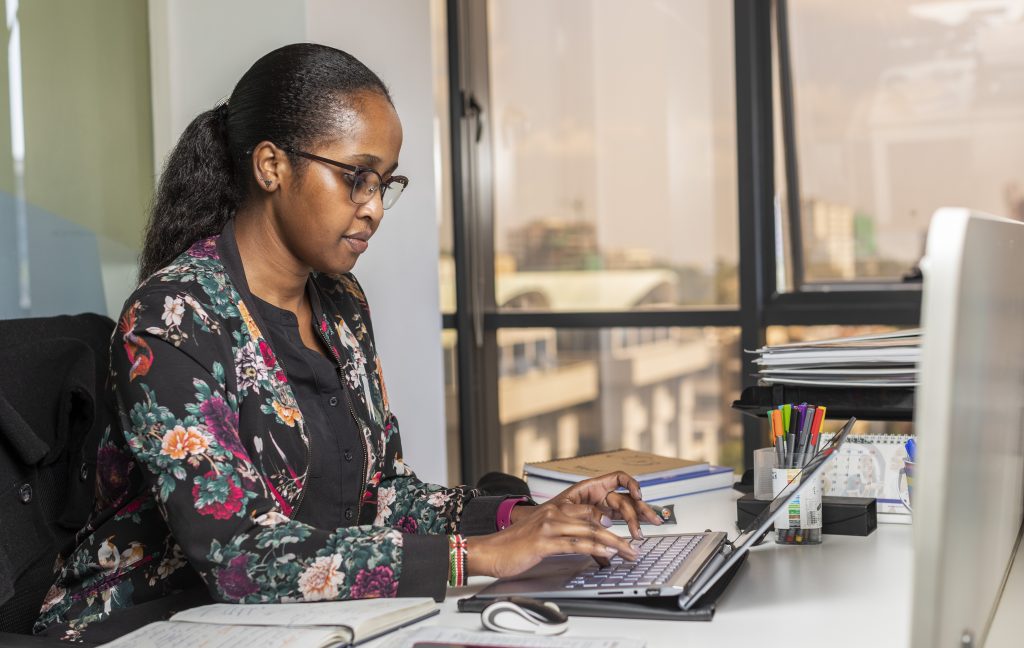
In what way is development communication different from other aspects of communications?
It is assumed there is a thin distinctive line with development communication, but I am convinced that there is a broad distinction. While development communication share the basic principles of overall communications, some twists present themselves in purely developing communications brands, assets, and content for humanitarian objectives and social impact. Whereas most corporate communications contribute to the bottom line and return on investment, the tangible output in development communications is seen through indicators such as sign-ups to a program, behaviour change, and social action as a result of communications towards specific development objectives.
The approach in advertising is also a bit different as it’s pretty lean for development communications due to the allocation of resources in development projects which favours the community and direct support towards development objectives that are different from corporate objectives.
Content creation is focused on giving voice to the community and how the initiatives have transformed their lives or how the society would benefit from the development projects. Development communications content is highly shaped towards driving social change, which as a focus is known as advocacy.
The reporting also brings a difference in development communications as reports are more detailed and have a hard focus on lives transformed, including social metrics that closely tie in the communications department with the Monitoring, Learning and Evaluation department for the need for verifiable data for all stakeholders.
What steps can professionals take to succeed in a development communications role?
A successful development communications professional should focus and stay interested by seeking knowledge and looking for opportunities in development organizations to understand how to shape development narratives. In addition, there is a need to Network, network, network…build relationships in the industry by attending events and engaging in development conversations.
Alongside that, developing writing skills suited to development target audience and stakeholders, basic knowledge in project management for donor-funded projects, and being open to working across the organization and departments with different teams for optimum coverage of project outputs is an asset. Lastly, the ability to multi-skill towards all the various touchpoints in the communication process is key to success.
Can you share one major challenge you have faced in your career so far and how you overcame it? What drives you to keep going when the challenges come?
Competing demands that come with being in communications stand out in the list of challenges in my career. The need to give equal attention to simultaneous projects competes with the need to constantly enhance my skills and learn new tools to help us keep up with the fast-paced industry. Trends and news influence communications, and there is a need to be in touch with the latest regularly. The demand to be upbeat with technology and personally plugging into the different apps, zoom calls, group chats, social media etc., makes the life of a communicator a buzz. This, at one point, created a blur between my personal life and work-life as work would run into nights, and it’s easy to this day to work more than 12 hours since there are no 8 hour days in my world.
The last two years were pretty rough as the flip side of being entirely switched on is wearing down the body and mind. I had to change things for my work, life and health’s sake. I now work with strict work plans, prioritized to-do lists and a personal routine that refreshes me to take up work with a clear mind. I have also encouraged a similar structured lifestyle within my team; work plans are clear and constant status/check-in meetings, and chats are encouraged to ensure we don’t feel weighed down by individual demands.
Every challenge, this one included, fuels me to find a solution and deliver the unique output communications offers. No day is similar to the other in terms of work done, no matter how routine. There is always a lesson learnt from the previous task or something new that we need to try. The response from the external and internal audience also differs with each output hence keeping things alive and agile. The common ground we reach on a creative decision and the feedback received, positive or negative, makes the end product’s delivery and seeing it work for the audience a point of adrenaline every single time.
What professional advice would you give to your younger self?
I realize the importance of picking a skill and mastering it slowly as I grow. I sincerely believe that there is so much to learn and apply right now that, most times, I look back and wish I started on them earlier in my career. I have, however, realized that it’s never too late to learn and keep growing; as long as you have the passion, you will grow the character and skill for the job.

